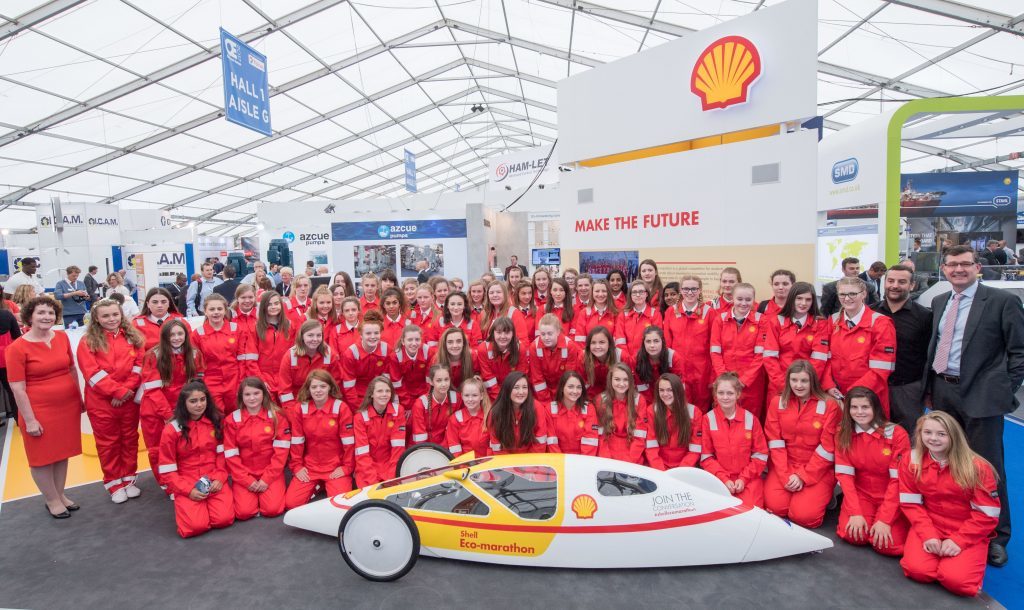
And social investment adviser John Raine believes that the scheme has given rise to the first signs of re-balancing the gender gap.
“We need to inspire girls to show them a wealth of careers in oil and gas”, Raine said.
“All we kept hearing was that if you work for Shell you work on a platform in the middle of the North Sea with fat men in boiler suits.
“We heard that more than once. So we really had to get across that the industry was so much more than that.”
Started in 2011, the Girls in Energy forms an additional part of the curriculum, with industry site visits and national challenges.
The Shell skills programme seeks to address the radical gender imbalance in energy, the only sector that employs less women than tech.
Having been involved with the course for five years now, John Raine is confident that women are about to breakdown the barriers that have long kept them out of the energy industry.
He said: “When girls come on this course they see jobs they’ve never heard of. What we try to do is show them careers that they could possibly move into. “I look at the girls and say: I’m not going to solve the energy challenge, but one of you might come up with something. It’s also not all about oil and gas, we show them renewable energy as well. Energy transition is a big part of this course.”
One teacher who’s witnessed the shift firsthand is Ali Hynd, a Technology Teacher at Mintland Academy. He’s actually seen former female students who took the course ju,p straight into the industry.
He said: “We’re now starting to see the progress as we’ve had a number of girls come through the course, several of whom are now working for Shell. One is on an oil platform, three are at a gas plant and one is at Peterhead Power Station. We’ve even seen the progression of one sister then another younger sister through the course.”
“It’s great to see schools working in partnership with industry in a way that’s second to none. Girls are really given the concept of what opportunities are out there through work experience. [Girls in Energy] gives girls the opportunity also engage with other girls from other schools from around the country who’re doing the same thing.”
Raine states proudly that the course has expanded year on year, this year boasting 160 in the north-east region alone, much of it via word of mouth.
Raine said: “We’re seeing more people come on now. Feedback from the girls is fuelling the next crop coming on.”
Case in point is Erin Ross, a 3rd year student at Mintlaw Academy who has family members involved in the oil and gas industry. She was encouraged by one of them to take on this additional National 5.
She said: “I took the course because my family are in engineering and my cousin had done it before me so she helped me take it on. I really enjoyed the workshops, we did a project on how much electricity it takes to heat a house and it’s made me think about things I hadn’t thought about before.”
Raine believes one of the things that makes the skills programme uniquely effective is the external site visits. Girls get to see supply chain companies in full flow, offshore survival training and techniques with companies like Survivex, fire training, supply vessels, dive support vessels, the gas plant at St Fergus while frequently meeting positive role models from Shell.
Confidence building is where Raine believes the course can really stand alone. The notion that energy is a niche industry set-up and designed for men is dwindling by the day. He wants girls to start competing on a level playing field, not just in the classroom, but in their mind.
He said: “In schools we’ll set an engineering challenge and all the boys will step forward, but they don’t always have the right answer. It’s about giving girls the confidence to step forward.”
Recommended for you
